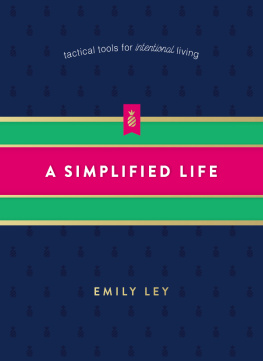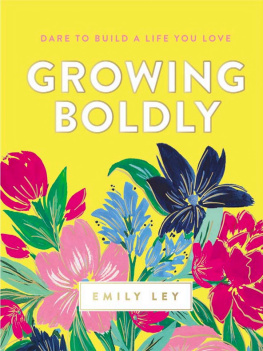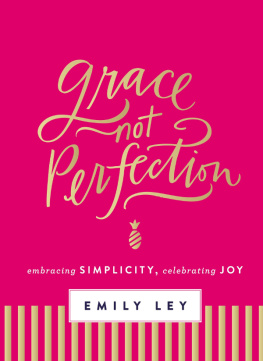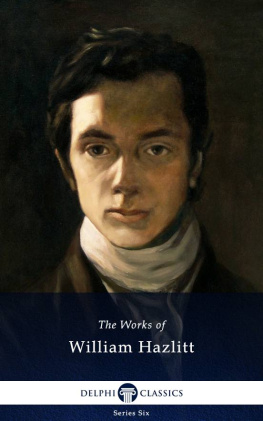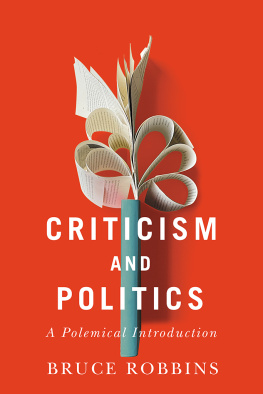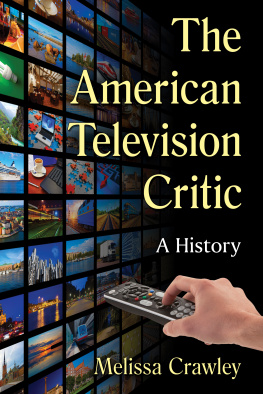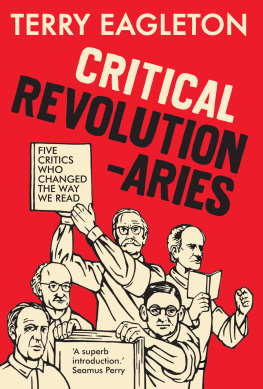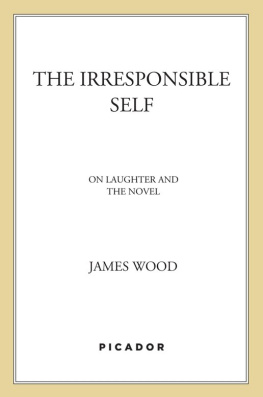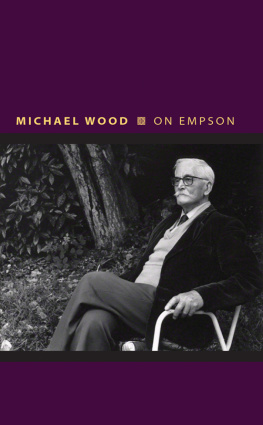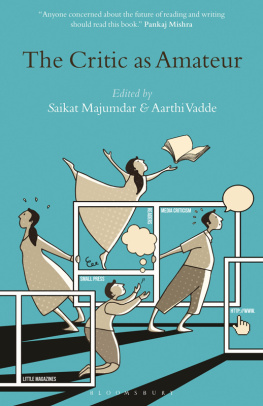The Critic in the Modern World
The Critic in the Modern World
Public Criticism from Samuel Johnson to
James Wood
James Ley

Contents
Permission to quote from the work of T. S. Eliot courtesy Faber and Faber Ltd. Excerpts from Selected Essays by T. S. Eliot, copyright 1950 by Houghton Mifflin Harcourt Publishing Company, copyright renewed 1978 by Esme Valerie Eliot, reprinted by permission of Houghton Mifflin Harcourt Publishing Company, all rights reserved. Excerpts from Selected Prose of T. S. Eliot , copyright 1975 by Esme Valerie Eliot, reprinted by permission Houghton Mifflin Harcourt Publishing Company, all rights reserved. Excerpts from Notes towards the Definition of Culture by T. S. Eliot, copyright 1949 by T.S. Eliot, copyright by Esme Valerie Eliot, reprinted by permission of Houghton Mifflin Harcourt Company, all rights reserved. Excerpts from After Strange Gods: A Primer of Modern Heresy by T. S. Eliot, copyright 1934 by Houghton Mifflin Harcourt Publishing Company, copyright renewed 1962 by T. S. Eliot, reprinted by permission of Houghton Mifflin Harcourt Publishing Company, all rights reserved. Excerpts from The Letters of T. S. El iot , copyright 1988 by SET Copyrights Limited, reprinted by permission of Houghton Mifflin Harcourt Publishing Company, all rights reserved.
Extracts from the work of Lionel Trilling copyright Lionel Trilling, used by permission of The Wylie Agency LLC. Extracts from Sincerity and Authenticity by Lionel Trilling, pp. 2, 11, 20, 26, 56, 63, 156, 157, 158, Cambridge, Mass.: Harvard University Press, Copyright 1971, 1972 by the President and Fellows of Harvard College, reprinted by permission of the publisher.
Quotations from the work of James Wood courtesy James Wood and the Wylie Agency LLC. Quotations from The Irresponsible Self: On Laughter and the Novel by James Wood, published by Jonathan Cape, reprinted by permission of The Random House Group Limited.
T. S. Eliot declared that criticism is as inevitable as breathing. Like so many of his unequivocal pronouncements, the line is instantly memorable. Its rhetorical force derives partly from the confidence with which it is asserted, but also from its appearance of almost bland self-evidence. One instantly knows what he means. The claim of inevitability would seem to rest on the unremarkable assumption that we all respond, on some level, to the cultural artefacts we encounter over the course of our lives. These responses naturally involve us in a process of evaluation and interpretation, even if we do not bother to formulate them beyond the recognition of an instinctive sense of like or dislike, even if we never feel compelled to share our impressions with another person. Find something meaningful or moving, engaging or irrelevant, beautiful or ugly, and one is beginning to act as a critic.
Understood in this way, criticism does indeed seem to be a universal, even definitive, human activity. Yet the inclusiveness of such a definition renders it problematic in a way that limits its usefulness. If criticism is inevitable, if it is simply the normal process of analysis and judgement by which we arrive at our personal opinions, the critic is not in a position to claim any distinct cultural function or identity. The many attempts that have been made throughout the modern era to define the function of literary criticism, to align its practice with some higher purpose or to justify its existence as an independent intellectual discipline can be understood, at least in part, as responses to this uneasy sense that the critic seems to have no stable, clearly defined purpose that the cultural position of the critic is self-created and must therefore be constantly scrutinized and re-conceived. One of the most evident of the various cultural anxieties that have shadowed the practice of literary criticism throughout its modern history is a nagging sense of doubt about its necessity. What purpose does the critic serve? Do we really need an intermediary between reader and text? Are we not perfectly capable of making sense of the work for ourselves? One of the historical vulnerabilities of literature, as a subject for study, Martin Amis has observed,
is that it has never seemed difficult enough. This may come as news to the buckled figure of the book-reviewer, and to the literary critic, but its true. Hence the various attempts to elevate it, complicate it, systematise it. Interacting with literature is easy. Anyone can join in, because words (unlike palettes and pianos) lead a double life: we all have a competence.
One response to the uncertain cultural status of the literary critic is to claim expertise, to position oneself as the person who is more knowledgeable, insightful, cogent, sensitive and articulate than the average reader. Eliot often makes a show of downplaying the intellectual ambitions of his criticism, but he is, in fact, a master of this critical strategy. Everyone is a critic, according to Eliot; the problem is that almost everyone is a bad critic. In his early critical writings, in particular, he surveys a world awash with naive and sentimental responses to literature. He chides critics who have not read well enough or widely enough, who have failed to see the big picture, whose philosophies are inadequate or unsound, whose definitions lack clarity and precision. He deplores criticism that is merely subjective and piecemeal when it should always strive to be objective and comprehensive.
In practice, Eliot never quite lived up to his own critical ideal of comprehensive objectivity. It is doubtful anyone could. But as a means of establishing his critical authority, his stance proved remarkably effective. His success, to be fair, was the result of more than just self-confidence and a talent for rhetorical assertion. Eliot really was more knowledgeable and insightful about poetry than many other critics before or since; he really did have original things to say on the subject (I am less inclined to credit him with sensitivity and cogency, particularly with regard to his social and political views). Many of the critical ideas he proposed found a receptive audience because he developed shrewd and incisive ways to articulate crucial aspects of the emerging aesthetic of literary modernism.
But Eliots donnish air of superiority has dated badly, and, as a result, it allows us to recognize that putting on such airs is something of an occupational hazard for the critic. For to criticize something is inevitably to assume a position of intellectual mastery, to offer ones interpretation as a form of meta-discourse. As any number of literary theorists have pointed out, criticism cannot be regarded as an innocent activity. The act of interpretation, even when undertaken in the best of faith, is an exercise in selectivity; it involves an element of appropriation, in which the critic overwrites the work in his own idiom and, in doing so, adapts it to suit his own purposes. The problem that arises, then, is not simply the heresy of paraphrase but the question of the critics underlying agenda, the intellectual position he is seeking, perhaps rather sneakily, to advance.
Eliots pretence of reluctant superiority is apt to seem unsatisfactory to contemporary readers because its dated quality highlights the ambiguous, even contradictory, cultural position that the literary critic occupies. He appears to affirm the democratic universality of the critical impulse, to demonstrate and thus validate the authority of the individual judgement. But he also presumes to act as a rather stern cultural policeman. As the person who takes it upon himself to sort out the confusions of others and to correct, rather wearily, their errors of taste, he cannot help but appear suspiciously aristocratic.
Next page
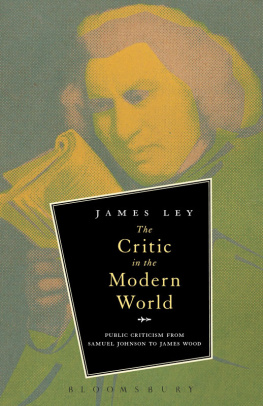
![Ley - When less becomes more [Release date Nov. 12, 2019]: making space for slow, simple, and good](/uploads/posts/book/215058/thumbs/ley-when-less-becomes-more-release-date-nov-12.jpg)
